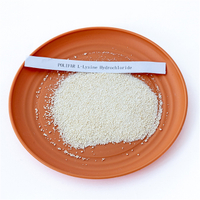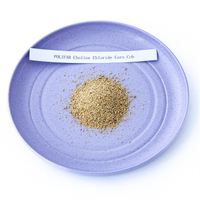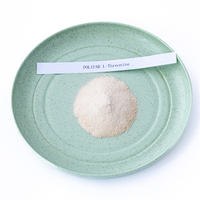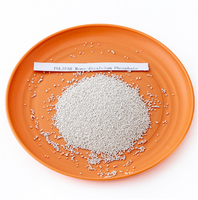Views: 6 Author: Site Editor Publish Time: 2019-09-21 Origin: Site








How do you use vitamin feed? Many people are wondering about this problem. After all, there are many kinds of vitamins, each with its own different effects. Even many vitamins have more than one use. In addition to vitamin feed supplements, there are many things to be aware of. If you don't pay attention to these, your vitamin feed will not work. Even if it is counterproductive, it will have more serious consequences. This article will explain in detail the precautions for vitamin feed.
This article contains the following:
Precautions when using vitamin additives
How to use vitamin supplements
Summary
Consider the relationship between vitamins
Vitamins are divided into A, D, E, B1, B2, B6, B12, C, folic acid, niacin, pantothenic acid, biotin and the like. Among them, B1, E, C, and A have anti-stress effects; A, D, E, B2, B6, B12, niacin, pantothenic acid, folic acid, and biotin improve reproductive performance, A, E, K3, B2, C, Folic acid enhances disease resistance; A, E, K3, B2, C, folic acid help bone development; B1, B2, B6, C increase animal appetite; K3, folic acid, choline help to improve eggshell color; D, C, A helps to improve eggshell strength; A, E, B1, B2, B6, folic acid, pantothenic acid, niacin help relieve digestive tract diseases; A, B2, niacin, B6, B12, D, pantothenic acid, biotin to animals Feathers are good; E, B2, B12, niacin, pantothenic acid, and biotin help to improve skin roughness and dermatitis in animals.
The same vitamin has many different properties, and the addition of vitamins of the same performance can maximize the utility.
Correctly grasp the need for vitamin feed for livestock and poultry
The variety and variety of livestock and poultry are different for each type of vitamin feed. In addition, the health of livestock and the stimulation of various environmental factors will also affect the demand for vitamin feed for livestock and poultry. Under stress conditions, the demand for certain vitamin feeds by livestock and poultry will increase.
When using vitamin supplements, not only should the amount of active ingredients be converted, but also the amount of loss during processing and storage should be considered to be excessively added.
Pay attention to incompatibility taboo
Mineral additives cannot be formulated with vitamin feed. Therefore, mineral elements oxidize and decompose vitamins, thereby accelerating the effect of destroying vitamins.
Differentiate the demand and supply of vitamins
In the process of using feed, the farm must pay attention to distinguish the demand and supply of vitamin feed. Practice has shown that during the use of vitamin supplemented feed, the supply is usually twice the amount required. The cause of the seemingly complex, in fact, mainly lies in the loss of vitamins in the feed and the potency of vitamins.
Vitamin feed can not replace drugs
Many farms have discovered various pathological phenomena in the process of livestock and poultry breeding, and through their own knowledge of the reserve of vitamin feed, supplement various vitamins to achieve the purpose of treatment.
The above behavior is very unacceptable. Firstly, the professional technicians of the farms are often overly reliant on farming experience, which often leads to misjudgment. Secondly, the veterinarian has a systematic scientific examination system for the causes and symptoms of livestock and poultry, which can more accurately grasp the condition.
Pay attention to mixing evenly
When using pharmaceutical additives as feed additives, pay attention to mixing evenly. Do not mix the feed additives in a large amount of feed at a time. Mix them in a small amount of feed first, then mix them in a certain amount of feed, then mix well. . For vitamin additive products, regardless of the dosage form, it must be stirred evenly in the feed. If water is added at the same time, the water temperature should not be too high.
Add vitamins after granulation (expansion)
After testing by the feed enterprise, the vitamin feed additive is used before the feed granulation (expansion), and the vitamin in the feed will undergo a redox reaction during the expansion process, resulting in a large loss of vitamins.
Adding vitamins after feed granulation (expansion) can reduce the loss of vitamins caused during granulation.
Try to use the latest feed vitamins
Not only does the vitamin feed cause loss during storage and transportation, but the vitamin additive itself also causes loss of active ingredients due to poor storage. In order to ensure sufficient active ingredients in the feed preparation process, it is recommended to select vitamin additives with a shorter production date and regular source.
Pay attention to the vitamin's potency
For example, for chickens, the synthetic vitamin A titer is 100% compared to synthetic vitamin A. The bioavailability of vitamin A in cod liver oil is only 30 to 75%. There are a variety of vitamin additives currently available on the market, both single and composite. More complex, and pay attention to its active ingredient content.
Vitamin feed is an important part of animal nutrition and animal safety, but if you feel more and better, then it is a big mistake. The use of vitamins must be based on the different effects of different vitamins, combined with the needs of stocking animals, the use of the corresponding vitamin feed additives to achieve maximum results.
content is empty!






